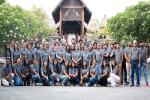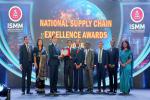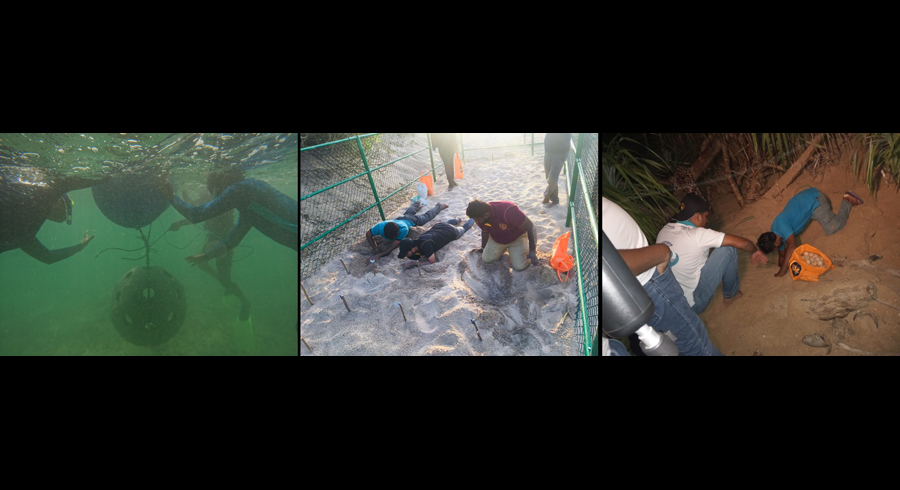Launched as part of their corporate social responsibility efforts, this program aims to restore and protect the oceanic ecosystem of Sri Lanka, aligning with the United Nations Sustainable Development Goal No. 14: Life below Water.
Marine biodiversity plays a vital role in ensuring a sustainable future, and Sampath Bank recognizes its importance in achieving global goals.
With the objective of improving oceanic biodiversity and reducing the impact of climate change, the bank has implemented the 'A Breath to the Ocean' program, which comprises three key aspects: the Turtle Conservation Program, Coral Restoration Program, and Mangrove forest restoration program.
In collaboration with the Department of Wildlife Conservation (DWC), Sampath Bank has embarked on a mission to safeguard vulnerable sea turtles that visit Sri Lankan shores.
Due to commercial fishing, destruction of natural nests, loss of the habitat and climate changes, sea turtle populations have seen a gradual depletion.
In line with this situation, the project focuses on Rekawa beach, a renowned breeding zone for five endangered turtle species.
The bank has constructed two turtle hatcheries to protect turtle eggs, while informational boards have been placed in Rakawa to raise awareness among local and foreign tourists.
With this establishment, more than 65,000 turtle eggs were protected during the last season.
The Bank’s objective is to promote Rakawa as a hotspot for turtle conservation and develop the Rekawa as a research and educational hub.
Moreover, the Bank aims to promote eco-tourism, contribute to the local economy, and position Sri Lanka as a "Paradise of Turtles."
The Bank will focus on implementing similar projects in several strategically important areas in the southern coastal region to conserve and increase the population of turtles as it directly implies with the conservation of the marine ecosystem.
To address the restoration of coral reefs, Sampath Bank is collaborating with the Department of Oceanography and Marine Geology and the Faculty of Fisheries and Marine Sciences & Technology, University of Ruhuna Department of Wildlife Conservation, the Marine Environment Protection Authority, the Department of Coast Conservation and Coastal Resource Management Sri Lanka Navy, Sri Lanka Coast Guard, and several other government institutions.
The Coral Restoration Program aims to protect marine resources off the coast of Bandaramulla, Mirissa.
Through the transplantation of live corals into reef balls placed in deep-sea locations, the program seeks to restore dead corals.
The bank's first and second phases of the initiative witnessed remarkable success, with active involvement from community members and key stakeholders.
The upcoming third phase will focus on enhancing the socio-economic development of the community in the area through workshops on key aspects of promoting eco-tourism.
Information boards will also be installed at project sites to educate visitors about the importance of coral restoration.
In collaboration with Biodiversity Sri Lanka (BSL), the Department of Wildlife Conservation (DWC), the International Union for Conservation of Nature (IUCN), and other entities, ‘Life to Our Mangroves’ Project aims to restore degraded forest patches in the Anawilundawa Ramsar Wetland Sanctuary.
Over the next five years, the bank will work to rejuvenate approximately one hectare of mangroves.
By employing nature-based solutions, the project will generate both environmental and socio-economic benefits.
Significant progress has already been made, including mapping out points, constructing main and sub-canals, and establishing plant nurseries.
As part of its commitment to staff engagement, volunteer staff members drive 'A Breath to the Ocean' project, fostering a sense of environmental responsibility among its employees.
In line with commemorating World Environment Day, Sampath Bank pledges to continue its efforts towards the protection and conservation of Sri Lanka’s fragile ecosystems, so that future generations may also enjoy the blessings that they bring to Sri Lanka.
Sampath Bank's 'A Breath to the Ocean' CSR project represents a paradigm shift in corporate environmental stewardship.
By actively contributing to the preservation of Sri Lanka's coastal ecosystems, engaging local communities, promoting eco-tourism, and embracing sustainable practices, Sampath Bank is leaving an indelible mark on the journey toward a greener and more resilient future for Sri Lanka.






















